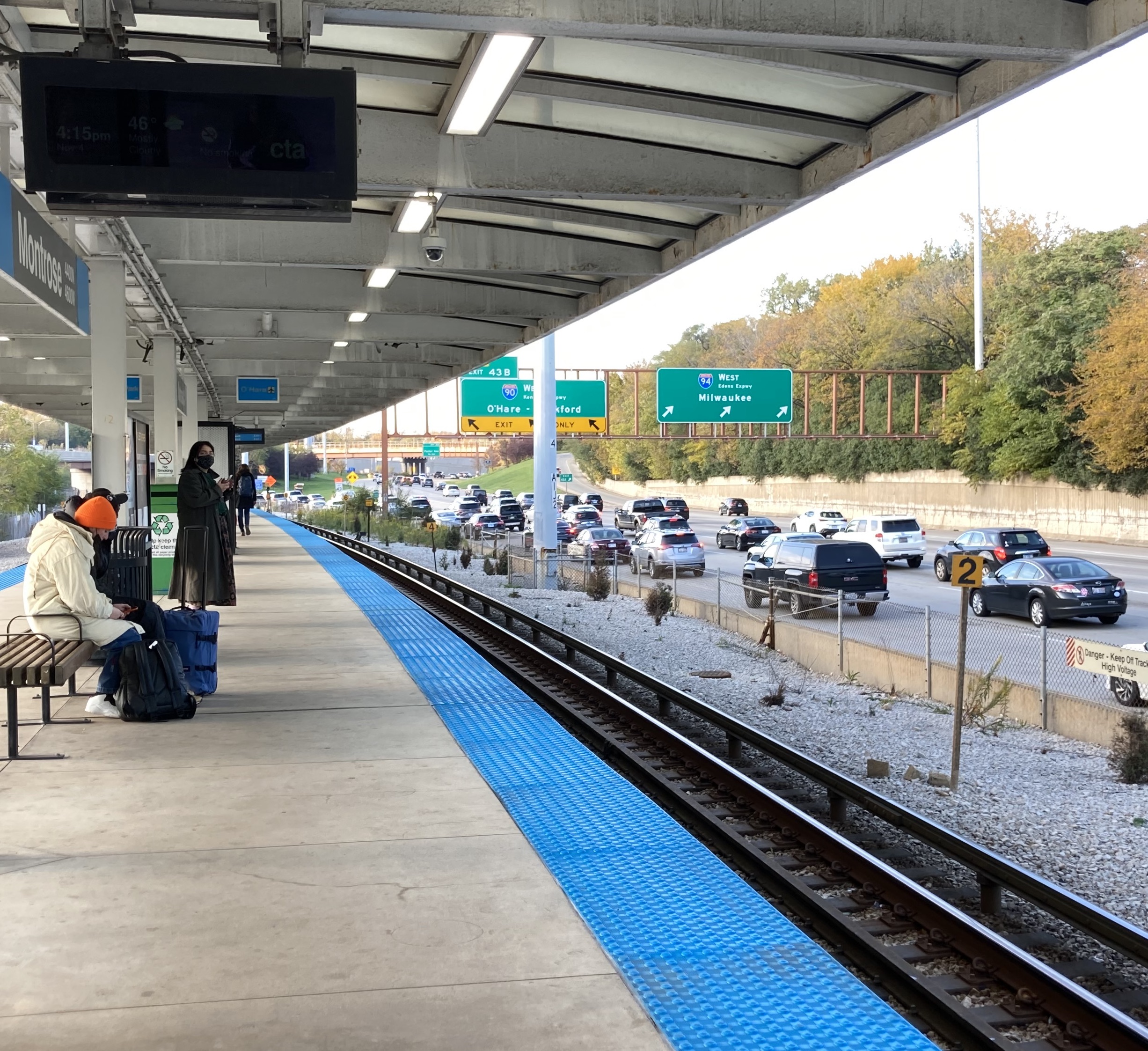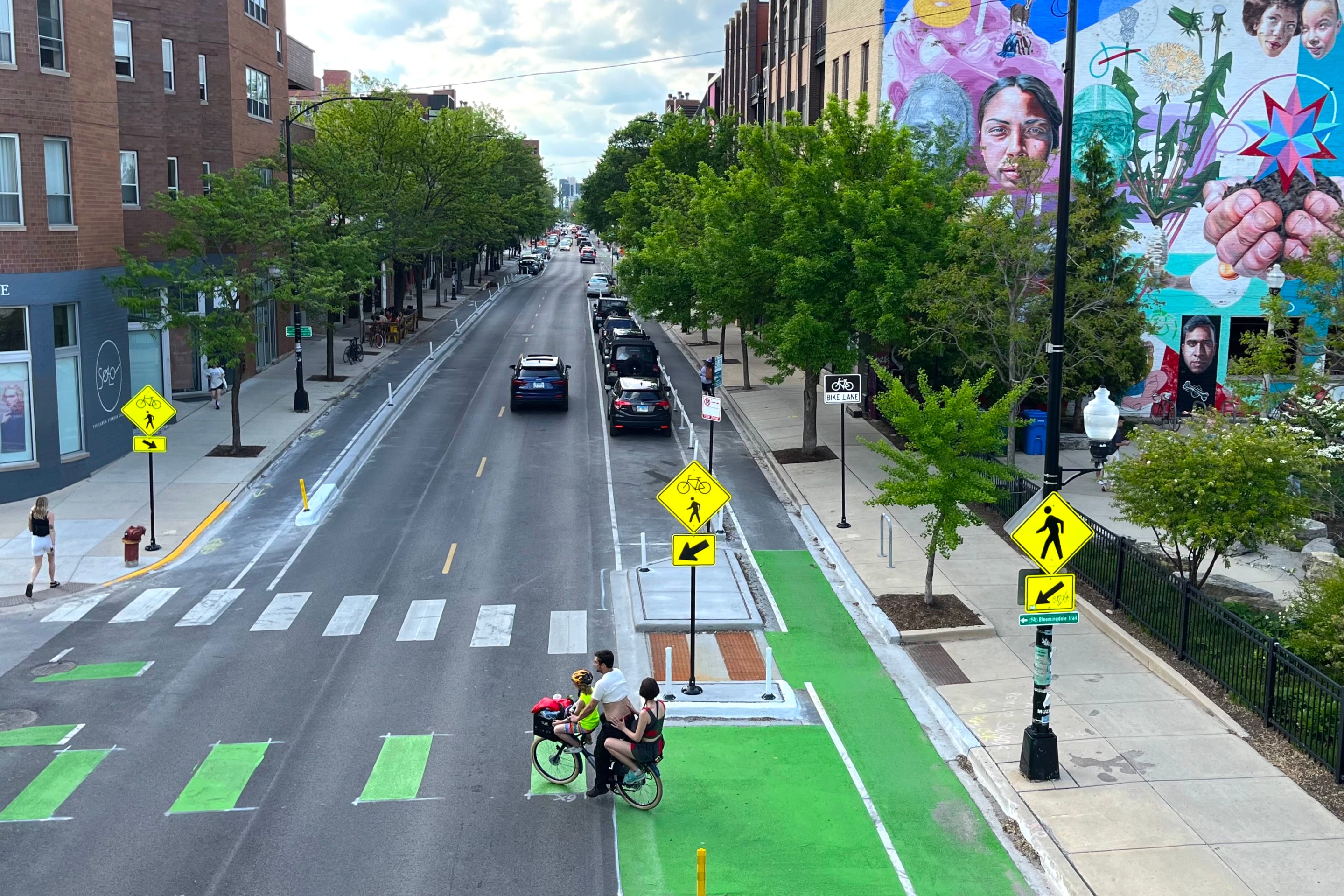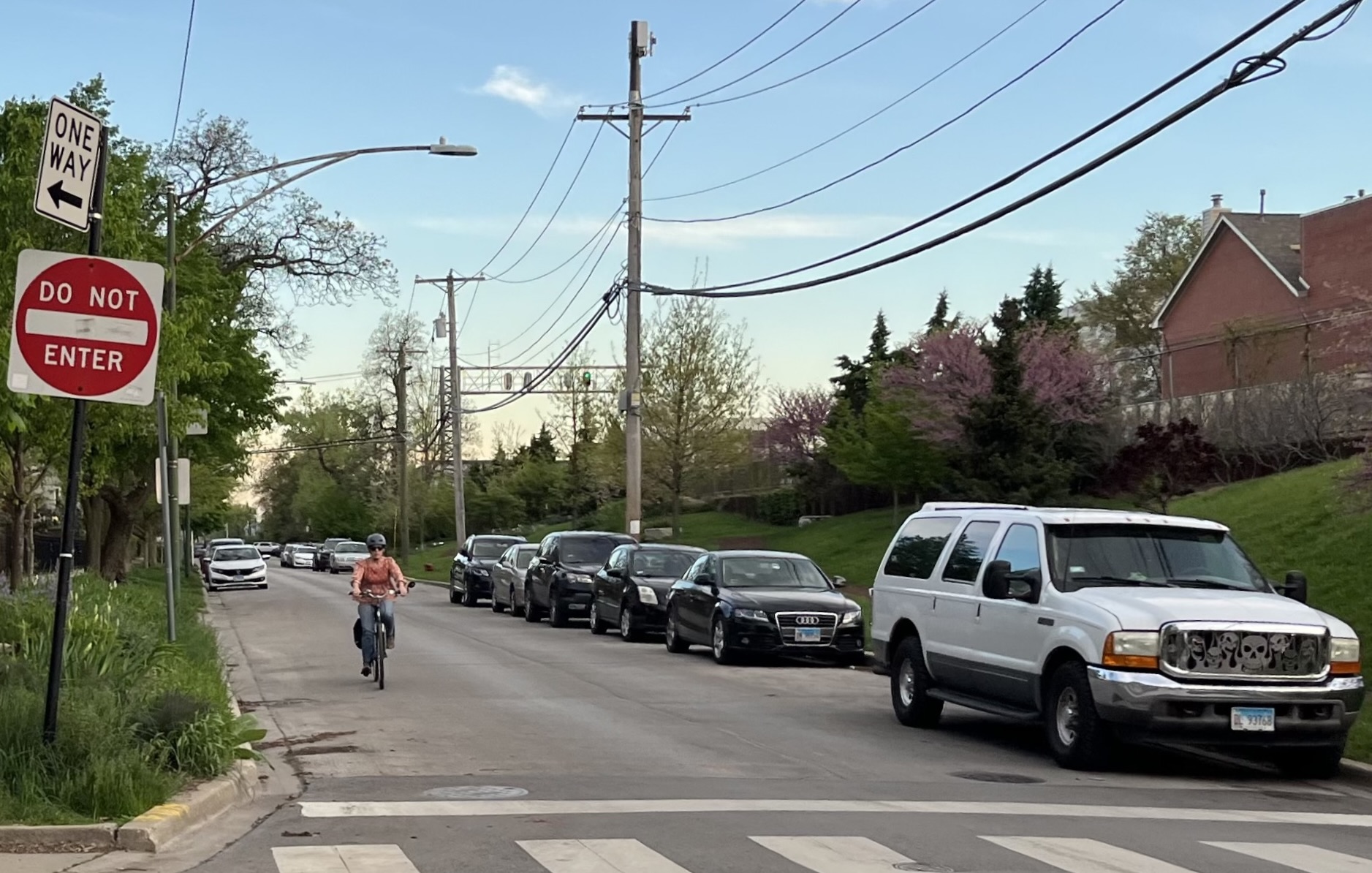On Monday the Chicago Tribune looked at the plight of local drivers stuck in some of the nation's worst commute traffic, based on the latest congestion study by the transportation analytics firm Inrix.
Streetsblog USA has previously noted that these annual Inrix traffic reports have been marred by multiple flaws. Issues have included an unrealistic definition of congestion that implies that roads aren't functioning properly unless it's easy for motorists to drive at illegal speeds; exaggerated estimates of the “cost” of congestion to travelers; and a bias against against compact cities with short average travel distances.
But there's no question that Chicagoland has nightmarish traffic, and choosing to drive to work here when you don't have to is a masochistic endeavor. According to the new Inrix report, local drivers wasted over four days sitting in commute traffic in 2021, the most of any other major U.S. metro region. Assuming that statistic is anywhere near accurate, all that time in a person's limited lifetime squandered is indeed a depressing thought.
The study found that some of the worst corridors in the area during the morning rush are the northbound Dan Ryan Expressway heading toward the Jane Byrne Interchange, and eastbound Irving Park Road from the Kennedy Expressway to Ashland Avenue. During the afternoon commute, the worst spots are the outbound Stevenson Expressway between the Ryan and Cicero Avenue, and the Eisenhower Expressway heading east to Harlem Avenue.
The Tribune article stated that potential "solution to alleviating traffic" include the Illinois Department of Transportation's plan to spend $2.7 billion to reconstruct and widen the Ike between Racine Avenue in Chicago and Wolf Road in west-suburban Hillside. IDOT is also planning to add two lanes to the Stevenson from the Tri-State Tollway to downtown Chicago. Money from Illinois' projected $17 billion in federal infrastructure bill funds would be used for these projects.
But history tells us that adding lanes to highways has no impact on traffic congestion since it encourages additional driving. “Roadway widenings are known to induce more vehicle miles traveled, which will result in negative climate impacts," Metropolitan Planning Council Transportation director Audrey Wennink recently told Streetsblog. She noted that a team of environmental organizations and academics created an induced demand calculator to demonstrate this principal.
And completely absent from the Tribune discussion of "solutions" to the congestion problem was any mention of proven strategies to make it easier to get to work, while reducing crashes and greenhouse emissions. That is, investing in fast, frequent, and reliable transit and other sustainable modes, so that far fewer people need to drive.
Fortunately, others have been making more rational statements this week about what Chicago needs to do to address traffic jams. "It’s been shown time and time again that highway expansion fails to provide long-term congestion relief," said Active Transportation Alliance spokesperson Kyle Whitehead. "It just leads to more emissions that harm the climate and neighborhood air quality while further isolating people who can’t afford or aren’t physically able to drive."
"Increased investment in fast, reliable public transit is clearly a more effective, sustainable, and equitable solution," Whitehead added. "Congestion pricing, such as charging drivers a toll for entering the Central Business District during peak hours, should also be considered if officials are truly interested in long-term, sustainable solutions."



